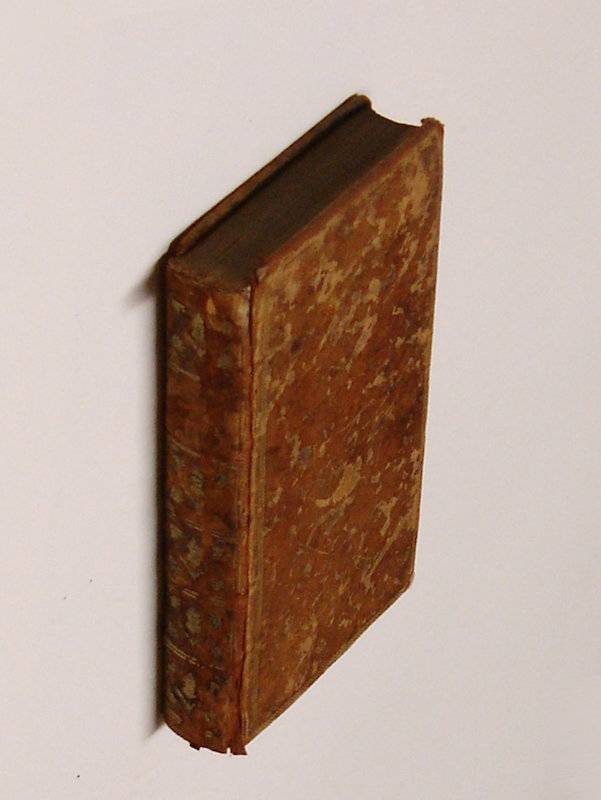SALLUSTIUS.
Quae exstant opera.
Paris (Parisiis), Typis J. Barbou. 1761.
12mo. (XXXVI),348 p., 3 plates (one of which is the frontispiece). Mottled calf 16 cm (
Ref: Schweiger 2,882; Graesse 6/1,241; Ebert 20036; Brunet 5,87) (
Details: Back gilt, boards with triple fillet gilt borders. Endpapers marbled. Edges of the bookblock gilt. The plates, including the frontispiece, are designed by N. Cochin filius and executed by E. Fessard. The frontispiece depicts the elevation to the Pantheon of the author, the historian Sallustius. Woodcut printer's mark of the Barbou brothers on the title, it depicts in a central round medallion two flying pelicans (or storks), with one feeding the other; it symbolizes mutual help and brotherly love) (
Condition: Binding shabby and scuffed, corners bumped. Inside good) (
Note: 'One of the most widely read and influential of Roman historians, along with Caesar, Livy, and Tacitus, Sallust (86-34 BC) has been studied, quoted, and imitated not only as a historian but also as a moral philosopher, political thinker, and stylist.' Until 1600 more than 200 editions of his work appeared. Sallust was used in France during the 16th and 17th century to support absolute theories of government. But, 'on the other hand, it was the republican Sallust,
ennemy of tyrants, whom John Milton admired and who bolstered the cause of liberty in the Lowlands during the war with Spain and, later, in France and on the American continent'. (The Classical tradition, Cambr. Mass., 2010 p. 856) Sallust's condemnation of corruption made a deep impression on the Founding Fathers of the American Republic at the end of the 18th century. One of them, John Adams, urged his son John Quincy to read Sallust, whom he called 'one of the most polished and perfect of the Roman historians'. The Barbou's previously published this same Sallust edition in 1754. This first Barbou is according to Schweiger and Ebert a reissue of the Sallust edition of Paris 1744, which was edited by the French historian and geographer St. Andr. Philippe, or rather Étienne André Philippe de Prétot, 1710-1787. He produced in the beginning of his career quite a number of editions of Latin classics. Between 1747 and 1755 he edited for the Parisian publisher Antoine-Urbain Coustelier Catullus, Tibullus, Propertius, Sallustius, Vergilius, Horatius, Juvenalis, Persius, Phaedrus, Lucretius, Velleius Paterculus, Eutropius and Terentius. (See Wikipedia 'Philippe de Prétot') (
Collation: a12, b6; A-O12, P6) (Photographs on request)
Book number: 120312 Euro 90.00
Keywords: (Oude Druk), (Rare Books), Bellum Jugurthinum, Catilina, Jugurtha, Latin literature, Roman history, Sallust, Sallustius, antike altertum antiquity, coniuratio Catilinae, römische Geschichte, römische Literatur
 SALLUSTIUS.
SALLUSTIUS.